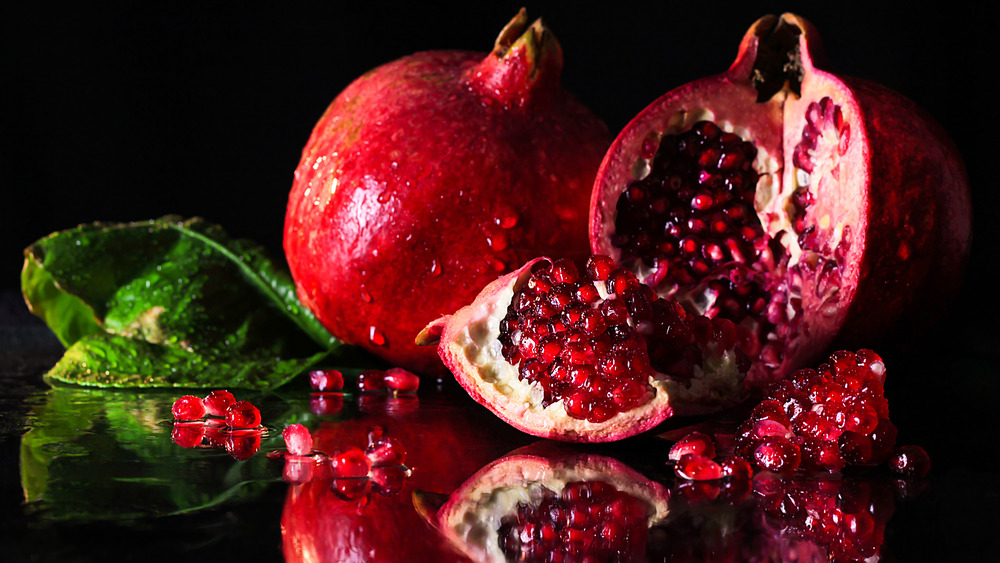The Greek Myth You Should Know Before You Eat Any More Pomegranate Seeds
Bite through the shiny skin of a ruby-red pomegranate seed, and you'll uncover a pocket of sweet juice and a crunchy white core. Like nibbling on jewels, the experience is unrivaled, as each seed delivers juicy nectar and a nutty crunch.
But take note: Pomegranates have a long and interesting history, and the fruit has played a role in many religions and belief systems throughout history. It's All Greek explains that pomegranates have been associated with life, death, rebirth, eternal life, fertility, abundance, and marriage. In fact, in Ancient Greek mythology, it was the pomegranate that explained the change in seasons. Seems when Hades married Persephone and took her to the underworld, he tricked her into eating six pomegranate seeds, which condemned her to spend eternity there. This caused Persephone's mother Demeter, goddess of fertility, to go into mourning, which meant everything on land ceased to grow. But only for six months. Since she ate six seeds, Persephone was freed from the underworld and allowed to see her mother the other six months of the year. It was those months (spring and summer) when mother and daughter were reunited, and the land was fertile.
Greek Reporter adds that smashing pomegranates on New Year's Day is an Ancient Greek custom that's still practiced today. Since the seeds (also called arils) are a symbol of life, good fortune, fertility, and eternity, the more seeds that scatter when the fruit is shattered, the luckier the New Year will be.
It's no myth that pomegranate seeds are nutrient powerhouses
While the connection between pomegranate seeds and eternal life may take some research, one thing is clear: The low-calorie fruit is brimming with vitamin C and polyphenols, powerful plant-based antioxidants that protect the body's cells from free radical damage and help prevent inflammation (via Medical News Today).
Healthline adds that pomegranates contain two unique polyphenols, punicalagins and punicic acid — extremely strong antioxidants that are responsible for most of the fruit's health benefits. Science Direct explains that these potent substances are important for the prevention and treatment of cardiac disease, cancer, arthritis, osteoarthritis, and inflammation.
Times of India asserts that, thanks to pomegranate's anti-viral properties and ability to boost the immune system and increase blood circulation, doctors recommend eating one pomegranate per day. Dr. Axe adds that pomegranates may also act as a natural aphrodisiac. In one study, consumption of pomegranate juice increased salivary testosterone levels by 24 percent, an upsurge that can heighten mood and increase sexual desire.
For fun and unique ways to incorporate pomegranate seeds into your diet, Have A Plant suggests sprinkling the seeds over salads, meat and seafood dishes, yogurt, pancakes, and waffles. You can also purée the seeds in a food processor and strain away the solids for pure, fresh pomegranate juice that can be used in drinks and to make ice cream.

